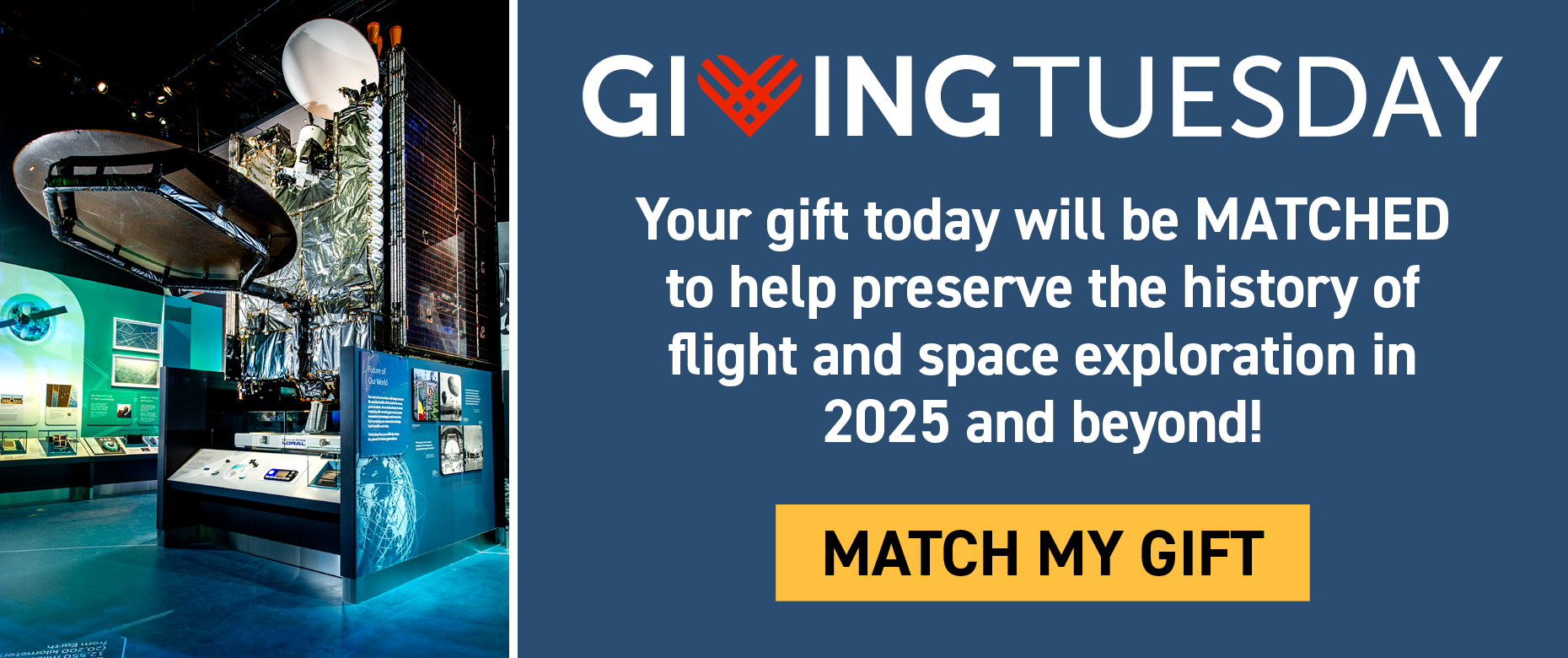All Stories
Showing 1621 - 1630 of 1717
Several months ago, according to statistics that measure the public’s access to the museum’s collections via our web site, the one artifact on exhibit at the Udvar-Hazy Center that our online users visited the most was….the Massively Parallel Processor.
National Air and Space Museum staff contribute to many larger Smithsonian efforts during any given year. For example, this year the Smithsonian Folklife Festival staff came calling. The 2010 Festival running June 24-28 and July 1-5, features the “culture” of the Smithsonian.
Sixty years ago, before dawn on a humid June morning, a massive North Korean ground army, and aircraft flown by Soviet pilots, pushed across the border into South Korea.
President Obama’s “Educate to Innovate” campaign, announced last year, calls for increased literacy in science, technology, engineering, and mathematics (STEM) for all students. Increased STEM literacy means increased understanding of key scientific concepts, increased familiarity with technology and its applications, and increased exposure to the experimental process. As one of the world’s most popular museums, our stories of science, technology, engineering, and mathematics are engaging and relevant to old and young visitors alike.
Sally Ride’s presence on Challenger for the seventh space shuttle mission truly was a ride into history
What does it take to organize a fly-in at the National Air and Space Museum? Lots of time and lots of good friends! As we head into our sixth year of Become a Pilot Day, it’s a great time to look back at how it all started and where we go from here. As a pilot myself, the idea of a fly-in was a no-brainer.
10 Cool Things You May Not Know About The Museum's Lockheed SR-71 Blackbird
In a previous blog post, I discussed the influence that Wernher von Braun had on the vision of the way that human space travel would progress, from brief flights into space to long duration missions to Mars. To continue that discussion: Wernher von Braun envisioned the space station to be something quite different from the International Space Station that is now in orbit: he imagined a wheel-shaped vessel that rotated to provide artificial gravity for its crew.
Many visitors express the wish to see the interiors of aircraft and spacecraft on display in the Museum. But to protect these historic treasures, they must be displayed behind barriers, which makes it impossible to see inside. But there are several cockpits you can see in the Museum, a day devoted to getting up close with aircraft, some cool electronic views, and a couple of great books that give those who are curious some excellent interior views.
What do yogurt cups and juice bottles have to do with the International Space Station? If you dropped by the National Mall Building on Saturday, May 8, between 10am and 3pm, you would have seen this question being answered by hundreds of visitors, working together to build a space station out of recycled materials. Space Day is an annual family day program sponsored by Lockheed Martin. In addressing this year’s theme, “Looking at Earth from Space,” our astronaut guests explained the incredible feeling of seeing the circumference of the earth from the window of the shuttle. Curators from the National Air and Space Museum and presenters from research organizations used models and displays to show how satellites work and the cool things we can do with them. We want family days to engage audiences of all ages in fun, informal, educational activities.
